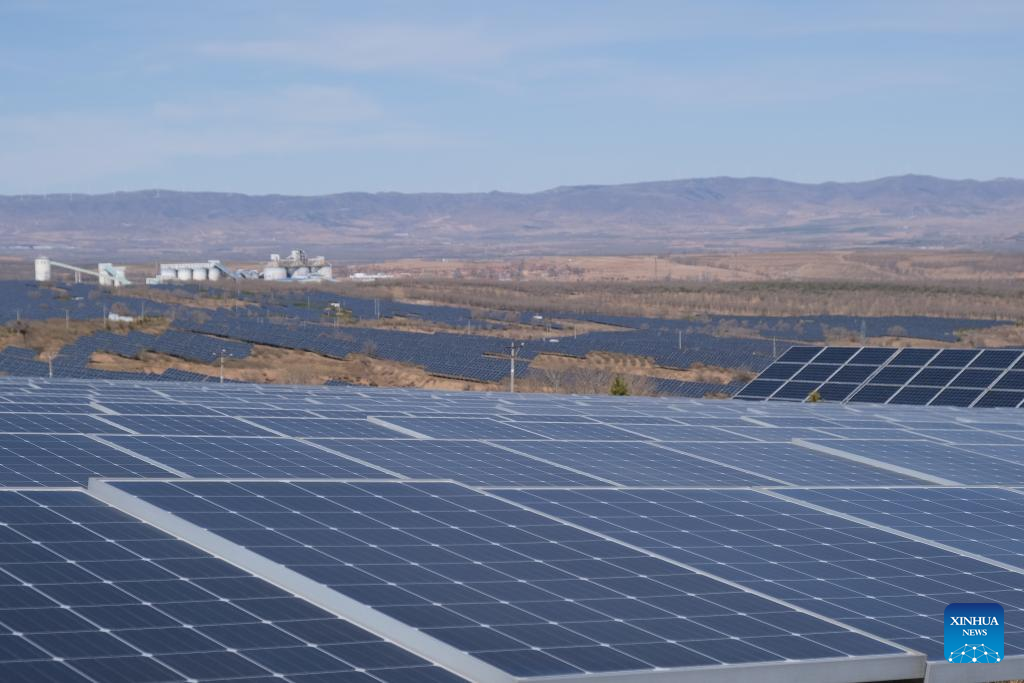
This photo taken on March 30, 2024 shows photovoltaic panels of Jinbei coal-mining subsidence area new energy base project in Datong, north China's Shanxi Province.(Xinhua/Chen Zhihao)
TAIYUAN, March 28 (Xinhua) -- The former coal mining hub in north China's Shanxi Province, which was once abandoned and shrouded in silence, is now buzzing with machines and workers bracing the cold winds.
The wind power photovoltaic project, known as the "Jinbei coal-mining subsidence area new energy base project," is located at a coal-mining subsidence area of Datong City. Construction of the project started earlier this year and it is set to be put into production by the end of 2025.
The project's total investment stands at about 55 billion yuan (about 7.6 billion U.S. dollars) and it is expected to generate six million kilowatts of electricity.
A coal-mining subsidence area refers to an area where the ground subsides and collapses after the underground coal resources are drained. This can cause the surface to deform and damage buildings, railways, rivers, and wells within the affected area.
Shanxi boasts abundant coal resources, which have been highly profitable for the province. However, years of coal-mining have resulted in large subsidence areas. Statistics show that the area of subsidence caused by coal-mining in Shanxi has reached 3,000 square kilometers.
Wang Peng, an official of the new energy and renewable energy department of the Shanxi Provincial Energy Bureau, said that development of new energy projects in coal-mining subsidence areas can improve the comprehensive utilization rate of energy resources.
He added that these areas are usually located in industrial belts or on the outskirts of cities, making them convenient for the construction of new energy projects and reducing power grid transmission losses.
According to the official, utilization of the abandoned land could not only lower the cost of new facilities, but also benefit local residents.
A photovoltaic power station built in the Shangshenjian township of Datong has created job opportunities for local residents. According to Fan Chao who was in charge of the project, between 50 and 60 employees were hired locally during construction. Upon completion, 80 percent of the maintenance workers are locals.
So far Shanxi has built photovoltaic power stations in the coal-mining subsidence areas that can collectively generate at least three million kilowatts of electricity.
In fact, new energy projects have been built in coal-mining subsidence areas in many places across China, with provinces such as Shandong and Anhui also housing such projects.
"New energy is the trend of future development. China's continuous construction of new energy projects on coal-mining subsidence areas will kill two birds with one stone, providing new ideas for both wasteland management and new energy development," said Wang. ■



